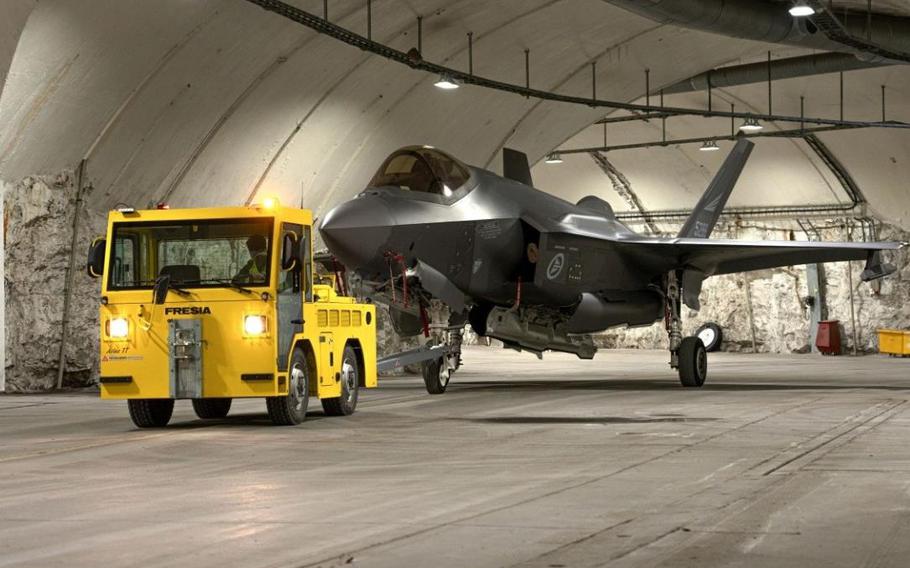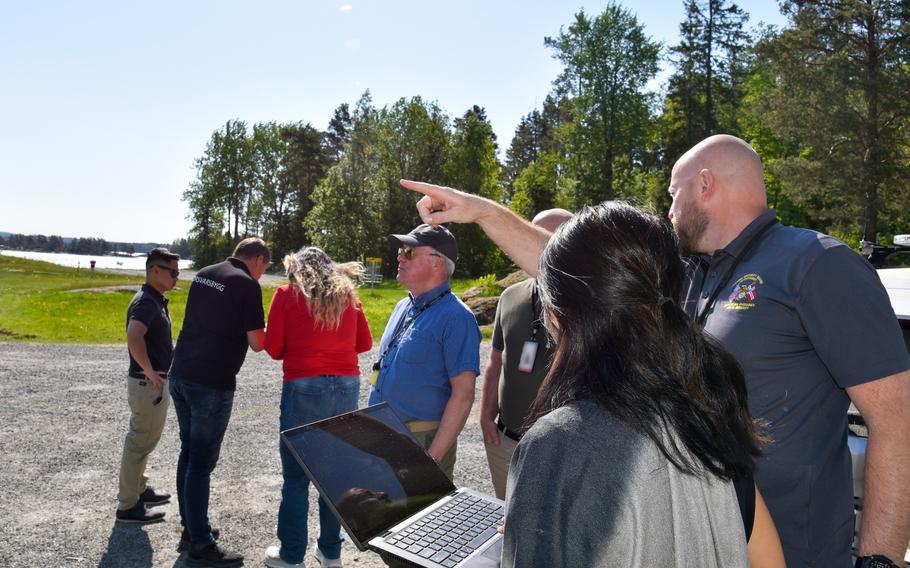
A tractor moves a Norwegian air force F-35 through a mountain hangar at Bardufoss Air Station in Norway in this undated photo. (Norwegian air force)
A $200 million upgrade is in store at an air station used by American troops in Norway, where a separate mountainside military hideout also is back in action 40 years after being shut down.
U.S. and Norwegian officials this week said the moves are part of an effort to support rapid troop deployments and larger air force formations in the High North, a region where countering Russia has become a top priority for NATO and U.S. European Command.
At the Rygge Air Station in southern Norway, EUCOM’s European Deterrence Initiative, which is focused on improving military infrastructure that U.S. forces may need in a crisis, will fund the major overhaul.
The actions at Rygge and others like it “are key to deterring aggression against NATO and ensuring readiness,” Paul Audije, program manager for the Army Corps of Engineers in Europe, said in a statement Thursday.
Work at Rygge is slated to begin later this year. It involves security improvements, expanded munitions storage, a quick reaction alert facility to store fighter jets and shelter for hundreds of airmen should they need to be quickly dispatched to the air station.
Meanwhile, the Norwegian air force said Wednesday that it had returned to an abandoned mountain hangar at Bardufoss Air Station in the north, taking back facilities inside a hideout that had been deactivated for four decades.

U.S. and Norwegian military representatives discuss future projects during a site visit at Rygge Air Station in Norway on May 23, 2024. (Chris Gardner/U.S. Army)
The natural features of the site will help shield Norway’s advanced F-35 fighters in the event of an attack, the country’s air force said.
Brig. Gen. Tron Strand, head of Norway’s Joint Air Operations Center, said in a statement Wednesday that Russia’s war in Ukraine and a deteriorating security situation in Europe prompted the reopening of the mountain hangar.
“Powerful stealth fighters are not enough. In a war situation, the planes are vulnerable on the ground,” Strand said.
The mountain hangar also will be available to allied aircraft as part of an effort to expand the range of options for NATO forces operating in the country, Strand said.
“First and foremost, this is about being prepared, and in the long term this may involve more national and allied activity here,” Strand said.